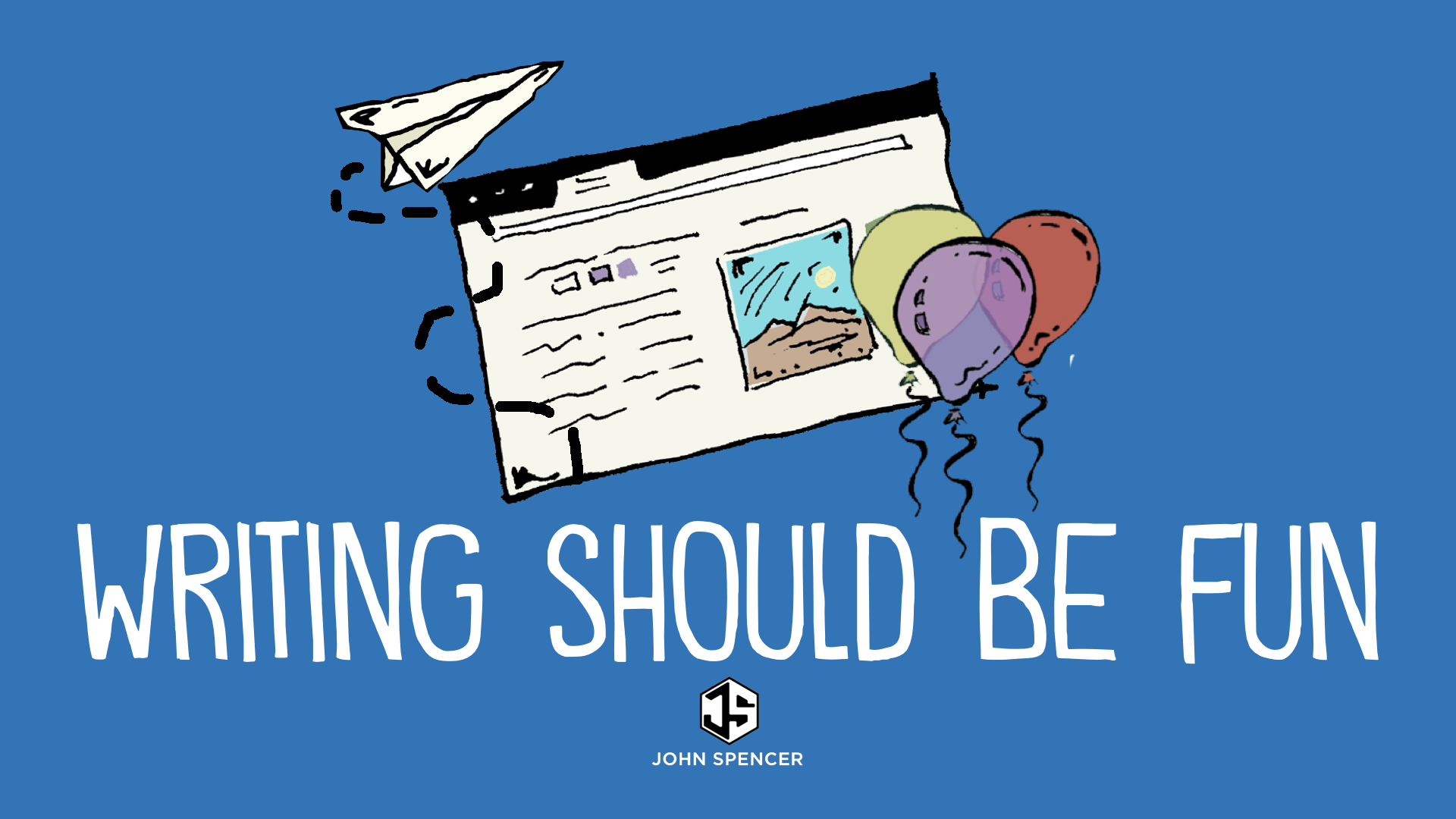Rethinking how we teach writing
10 Teacher-Tested Strategies to Engage Reluctant Writers
By John Spencer
A few years ago, my son opened a Google Document and started typing. I asked him about it and his eyes lit up as he described the shared story he was writing with classmates. This was the first day of summer break but he was choosing to write for fun. It might not sound like much but it’s an example of the tiny miracles that happen in classrooms all the time. My son fell in love with writing in Ms. Reddiger’s class. He spent a whole year getting up early and finishing his chores fast so that he could write a blog post or do a story on Storybird. He viewed himself as an author because of his teacher. more
 John Spencer
John Spencer